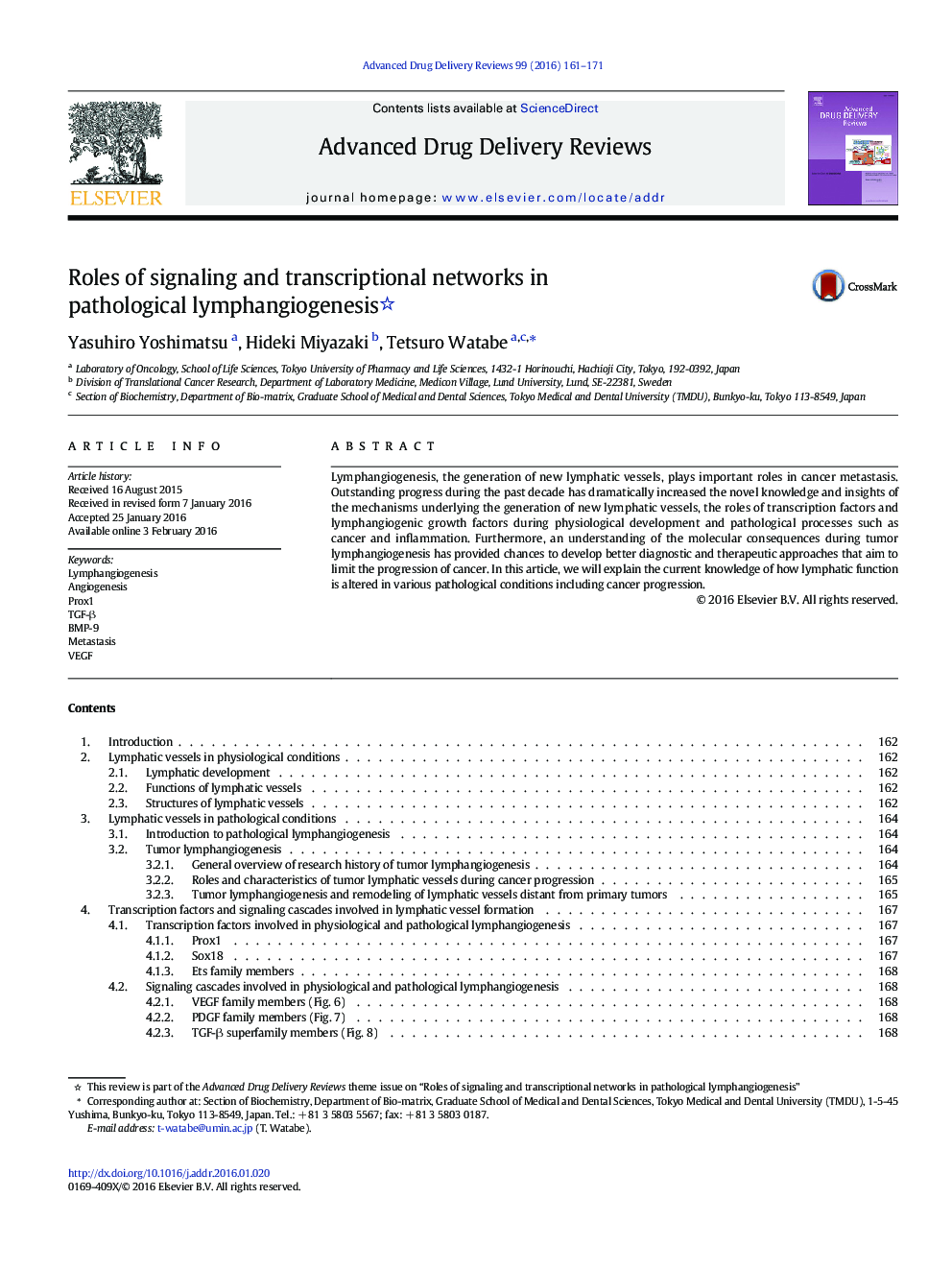| Article ID | Journal | Published Year | Pages | File Type |
|---|---|---|---|---|
| 2070716 | Advanced Drug Delivery Reviews | 2016 | 11 Pages |
Lymphangiogenesis, the generation of new lymphatic vessels, plays important roles in cancer metastasis. Outstanding progress during the past decade has dramatically increased the novel knowledge and insights of the mechanisms underlying the generation of new lymphatic vessels, the roles of transcription factors and lymphangiogenic growth factors during physiological development and pathological processes such as cancer and inflammation. Furthermore, an understanding of the molecular consequences during tumor lymphangiogenesis has provided chances to develop better diagnostic and therapeutic approaches that aim to limit the progression of cancer. In this article, we will explain the current knowledge of how lymphatic function is altered in various pathological conditions including cancer progression.
Graphical abstractRoles of positive and negative regulators of lymphangiogenesis during cancer metastasis. Cancer cells and infiltrating immune cells in primary tumor produce various factors that regulate lymphangiogenesis positively (e.g. VEGF-C/D) and negatively (TGF-β and BMP-9). Generation and remodeling of new lymphatic vessels promote the tumor cells to metastasize to lymph nodes and eventually to distant organs. Understanding the signaling and transcriptional networks regulating these processes will aid in developing novel therapeutic strategies for cancer.Figure optionsDownload full-size imageDownload high-quality image (270 K)Download as PowerPoint slide
